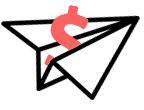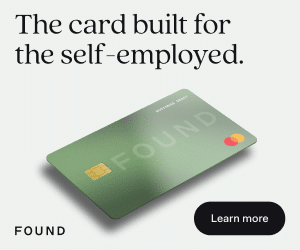UX designers and engineers are valuable experts who can apply their skills to various jobs. Furthermore, they can have diverse clients, from the automotive to the fashion industry.
The majority of the projects that UX engineers work on include web applications and websites, but many of us also work on mobile apps, branding, print media, and desktop apps. Our work experience varies from expert to expert, but this is the perfect job for someone talented in design and knowledgeable in technical skills.
This article will discuss the basics of UX design and the role of a UX engineer. It will also examine the daily responsibilities of a UX engineer, outlining their workflow and the necessary tasks we have to perform.

Get Weekly Freelance Gigs via Email
Enter your freelancing address and we’ll send you a FREE curated list of freelance jobs in your top category every week.
UX Design and Engineering
UX design involves creating products such as websites, apps, and branding materials. The goal of UX design is to make the product easy to use and to provide a relevant user experience that streamlines its use.
Designing user experiences starts with researching the average app user you’re creating. From there, you’ll jump into steps that include:
- Wireframing
- Prototyping
- Usability testing
- Structuring content
Eventually, UX designers can use data analysis to understand customer satisfaction with the user experience. Then, the whole process starts over again from the beginning, with UX designers adjusting to the application’s current state.
UX engineering is different from UX design, but the two have significant overlaps. A UX designer does not have the skills of a UX engineer, but the reverse is true.
If you’re interested in UX engineering, you must combine UX design knowledge with front-end development skills. Notable tasks that UX engineers do include:
- UI component development
- Backlog management
- UI maintenance
- Prototyping
Nowadays, there are millions of software developers worldwide.
Insert Picture 1: Number of software developers by country
But what’s truly valuable are unique combinations of skills and knowledge. Someone who knows both front-end development and UX design is a valuable expert.
Skills That UX Engineers Need
The term “engineering” suggests that the individual working in this role should have certain technical skills. However, their creative side needs to be present as well. Regarding technical skills, knowledge of HTML, CSS, and certain frameworks, such as React or Angular, is a must.
The introduction of website builders enables you to design and create websites without editing code. A good website builder is designed to simplify creating a website so you can build without relying on designers or developers.
Insert Picture 2: Example of a website builder interface
You can create a website that is friendly for all devices, improving your user experience. However, technical skills are still required to make custom changes. For example, other technical skills include the knowledge of responsive designs and version control systems like GitHub.
A user experience engineer’s job doesn’t always involve developing, but it does make up a significant portion of their work. In terms of UX design, knowledge of design tools like Sketch, Figma, Adobe XD, or InVision is incredibly important.

Insert Picture 3: UX design tools
Of course, no one is simultaneously an expert in all these design tools. However, according to job descriptions in the industry, having experience in one is likely a must. UX engineers should be able to create wireframes and prototypes.
The above-mentioned skills make a UX engineer a valuable asset to companies that create digital products. In addition to the skills themselves, a UX engineer must understand how the customer thinks and ensure that the user experience is flawless.
It’s worth mentioning that UX engineers can sometimes work on even more complex tasks, such as integrating front-end interfaces with back-end services. You can utilize an API management platform to streamline this process, ensuring seamless connectivity and functionality across different parts of the application.
Soft skills
Like in all digital jobs, soft skills are essential to your toolset. With UX engineers bridging the gap between design teams and engineers, they must understand how to communicate their message and ideas to several employees.
Good time management is very valuable along with the knack for communication and collaboration. This is especially true in remote environments, where one’s personal self-discipline and time management directly impact their work.

By knowing how to navigate employee scheduling apps, UX engineers can collaborate with their subordinates easily and better plan projects. Proficiency in these soft skills, paired with knowledge of design and front-end, is crucial for a bright career as a UX engineer.
Deep Dive Into the Daily Responsibilities of a UX Engineer
The day in the life of a UX engineer starts depending on their routines and goals. We skip steps such as coming to work, eating lunch, or commuting. When you arrive at your office, you will likely have to revisit the tasks you have for the day.
Those who work from an office and are a part of the bigger team usually work according to a scrum or another project management system. Once you look at all the different tasks you’ll have to work on, you can start your deep work session for the day or have a meeting.
Depending on the company’s size, these meetings would include either your closest team members or multiple teams across different departments. Your deep work session can consist of working on specific stages of the product, such as ideation, redesigning, prototyping, or others.
Some companies have multiple calls throughout the day, especially if you’re a freelancer working closely with a client. Your day ends depending on your work hours or tasks completed. Many UX engineers decide to create a to-do list for the upcoming day at the end of their work hours.

Applying UX Skills Beyond Digital Products
User experience design involves specific activities and tasks. However, this concept can be applied to a wide variety of digital and physical products.
In the physical world, UX designers can apply their knowledge to products such as computer mice, keyboards, or particular tools. Their knowledge is applied with ergonomics and effectiveness in mind.
Of course, knowledge in Figma doesn’t directly transfer to designing physical tools, but individuals with similar mindsets and talents are working on them.
A great UX designer will have to understand the kind of audience they’re talking to.
When checking out the Band of Brothers tours in Normandy page, notice how the website provides clear information, engaging visuals, and easy navigation to ensure a smooth booking experience.
The page offers detailed itineraries, highlights key historical sites, and includes customer reviews to help users make informed decisions.
Insert Picture 4: Band of brothers landing page
By understanding the user’s journey, the site enhances their overall experience, much like you would with a digital product.
How to Start Learning UX
It’s definitely true that there are more resources on the internet than ever before. However, because of the vast number of options, finding the best resources is hard. First, you should look at YouTube videos about bits and pieces related to UX.
Insert Picture 5: How to Become a Successful Freelance Designer YouTube video
Then, you can look at some of the highest-rated courses on platforms such as Coursera, LinkedIn Learning, Skillshare, or Millo. Coursera has some additional benefits besides being a great source of knowledge, as it can provide you with verified certificates.
You shouldn’t neglect many helpful books on the topic of UX design. Although books are less interactive than courses, they can be packed with knowledge, allowing you to study at your own pace.
When you feel comfortable with your knowledge, you should create your first project and share it with UX communities. You can then implement the feedback and add the project to your portfolio, increasing your chances of landing your first job as a UX designer.
Besides personal projects, internships or volunteer work are amazing ways to learn. One of my friends is currently learning UI and UX design in Figma, and he started working on his career by helping me create my affiliate website.
This way, he has an obvious purpose and idea behind his work and receives honest and uplifting feedback. So, if you’re wondering what type of project you would want to work on, ask your friends. Maybe some of them have a million-dollar idea for a website or an app.
Kickstart Your UX Learning Career
There are tons of resources on the internet that can help you start your career as a UX engineer. Whether you’re a student at the start of your career or an expert in another field looking to switch roles, you can find some great courses and books.
I’ve never been interested in becoming a UX designer. However, when I was working on my startup, we had to hire a website designer. I wanted to understand whether they did a good job beyond what looked good to me.
So, I started watching videos on UX design to differentiate good from bad design. My conclusion is that you should have some basic knowledge of UX, as it can help you in certain aspects of your career, whether you’re a writer, developer, or entrepreneur.
Keep the conversation going…
Over 10,000 of us are having daily conversations over in our free Facebook group and we’d love to see you there. Join us!

